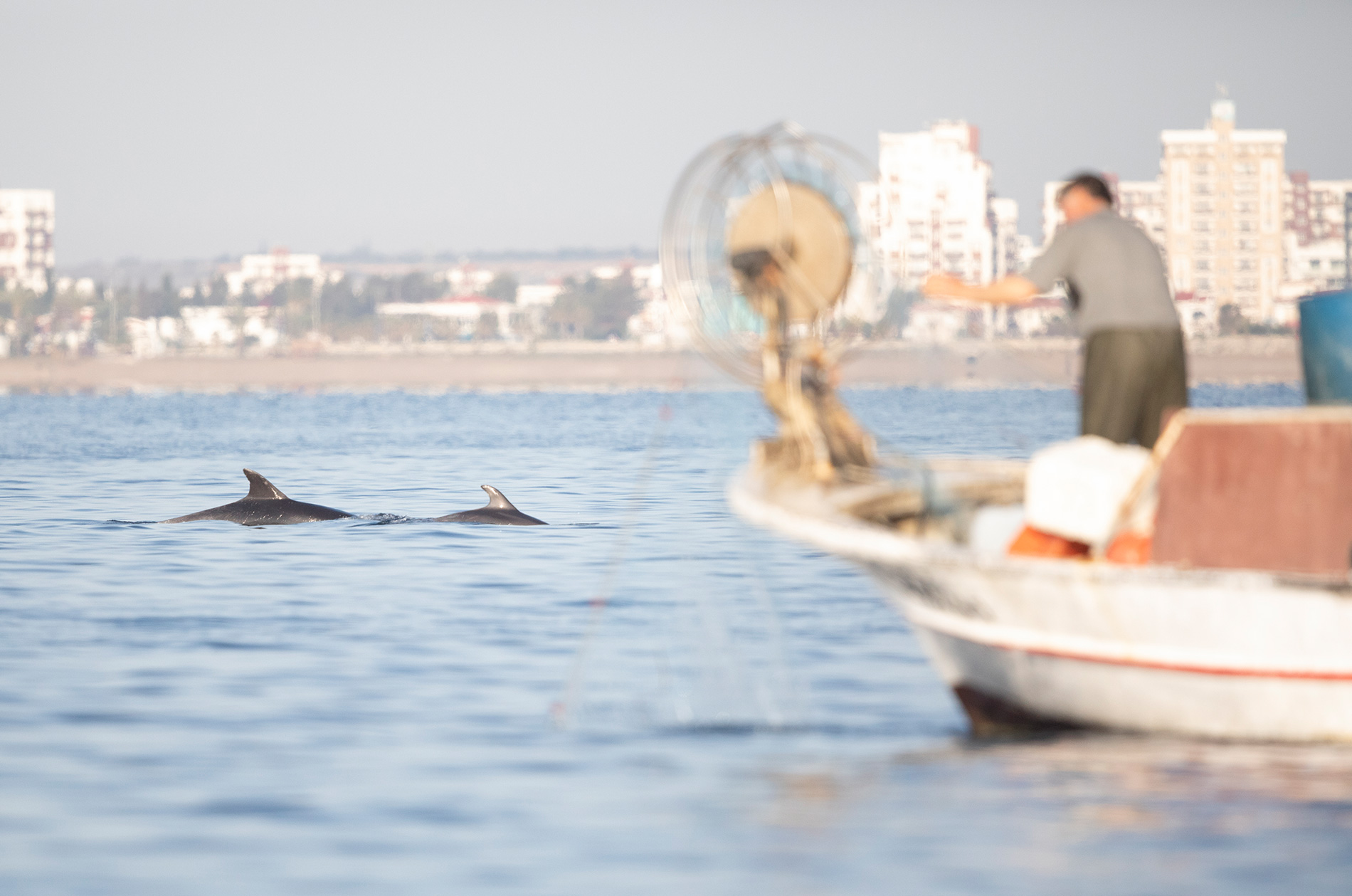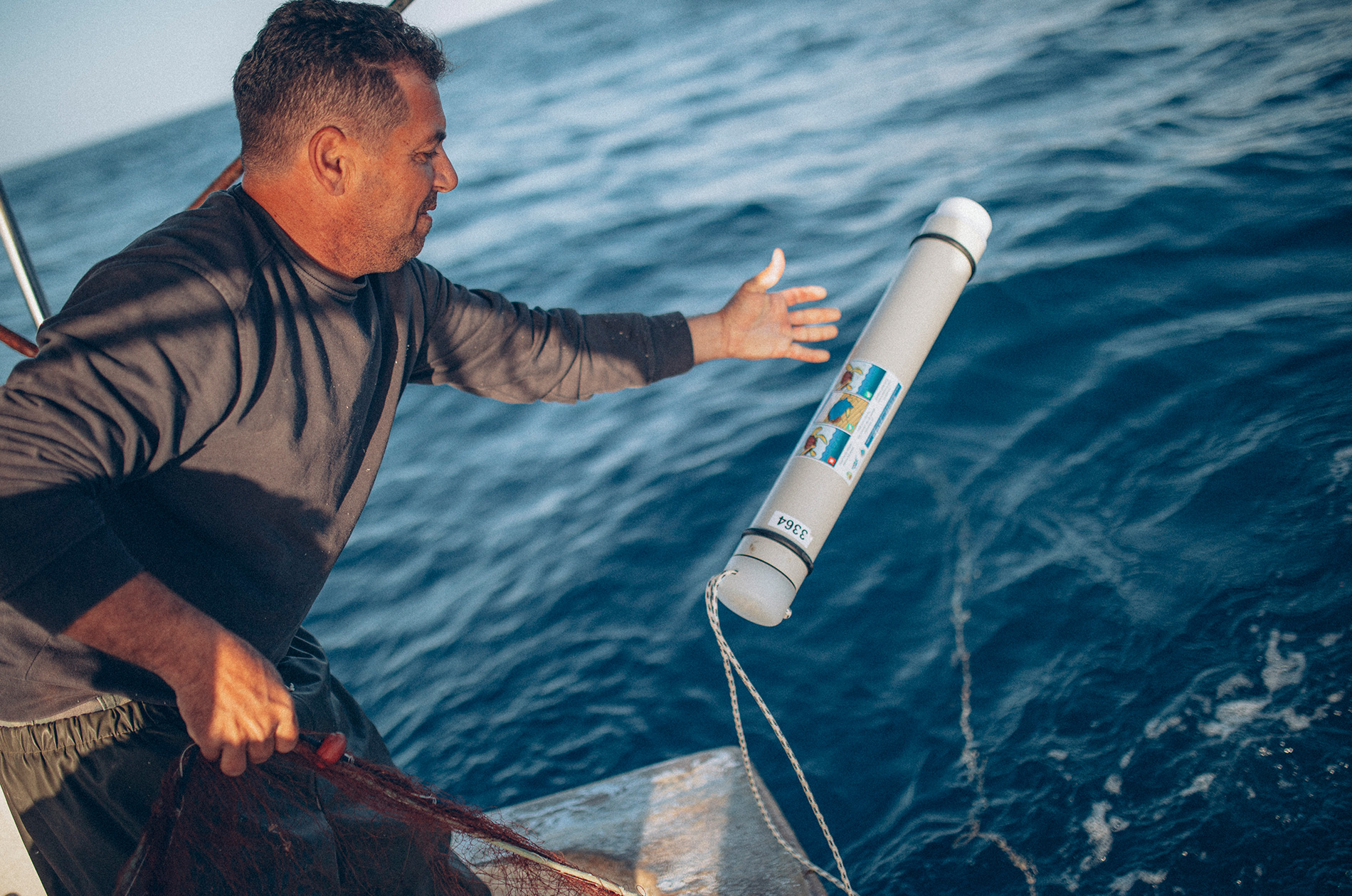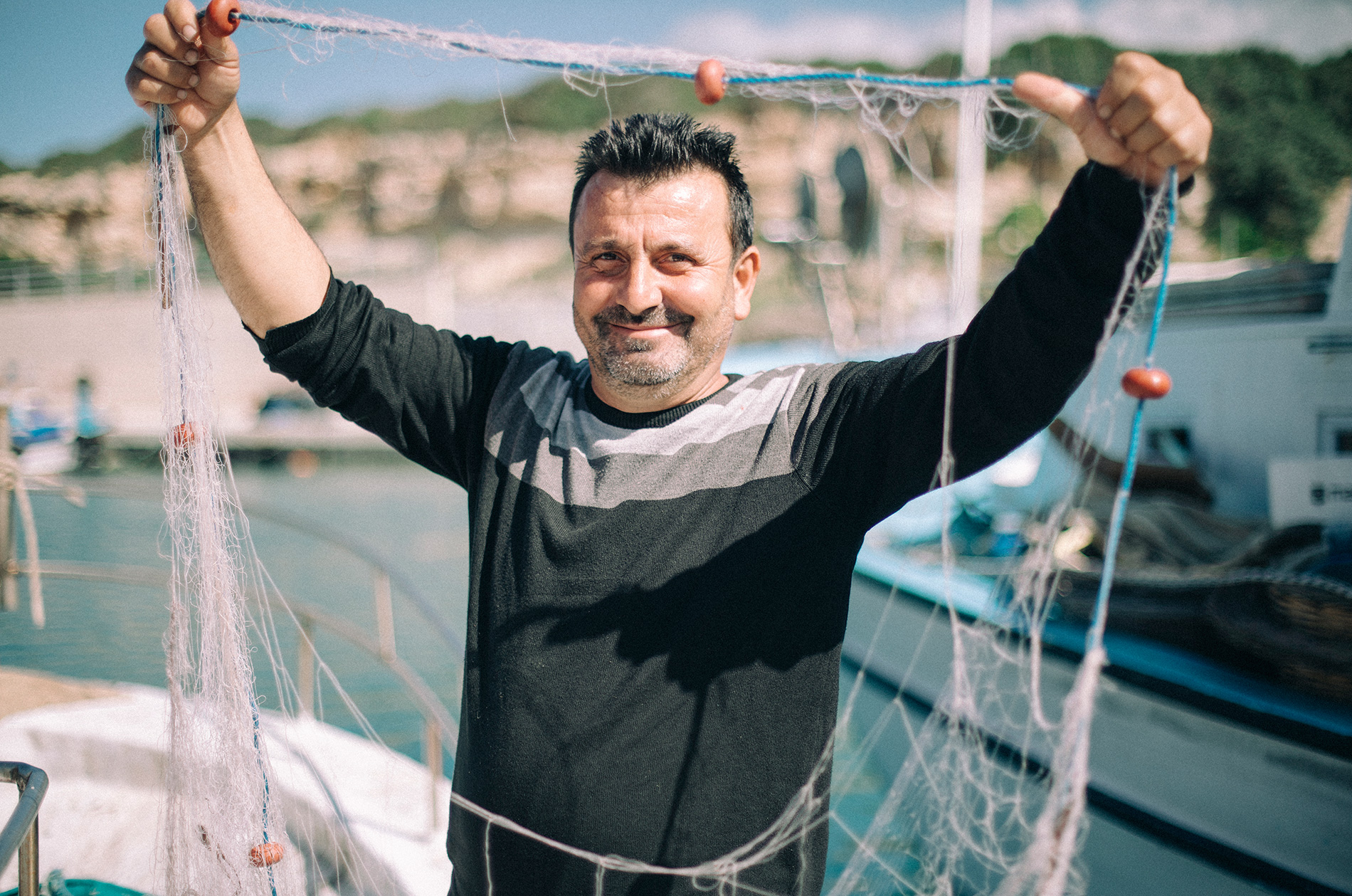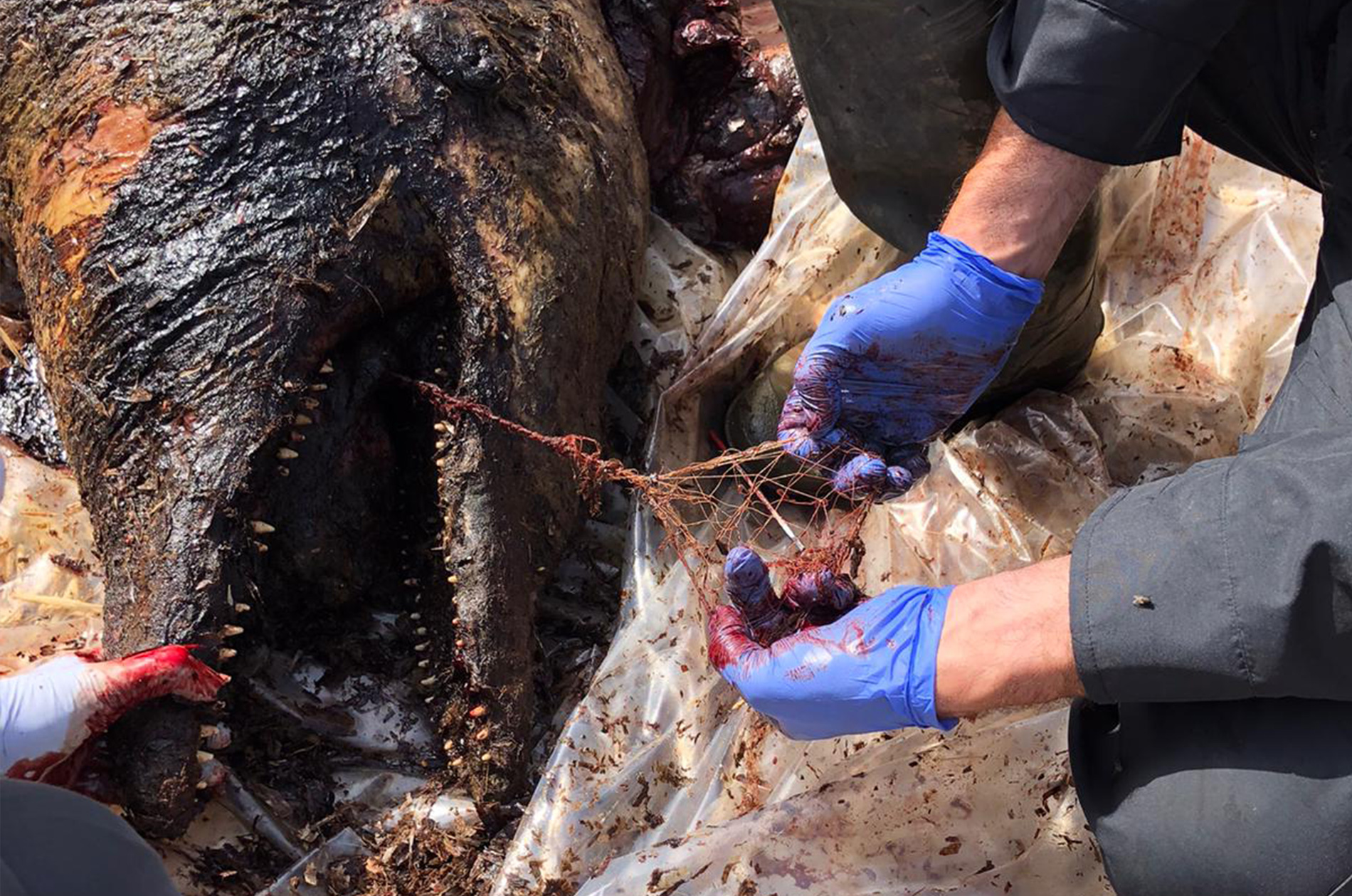SPOT trialled pingers (acoustic deterrent devices that are designed to drive dolphins away from nets) to try to separate the dolphins from nets. But this only made the problem worse. The pingers had a “dinner bell” effect! But by listening to dolphins at fishing nets, we began to learn about their behaviour.
Since then, we have been deploying acoustic monitoring devices called CPODs in collaboration with fishers across the coast. Fishers set the CPODs on their nets and are tracked by GPS so that we know where and when the dolphins are showing up. Fishers have been recording data for us in this way since 2019, while fish farms are also deploying CPODs for us. This will allow us to understand depredation patterns in more detail and we hope that this might help to understand how fishers could avoid depredation. This is the focus of a current MSc study.
Ultimately, better fish stock management and the development of Marine Protected Areas where dolphins could flourish, would be a clear positive step toward resolving the conflict between fishers and dolphins. We strive to achieve this through advocacy and policy actions of various programmes.




